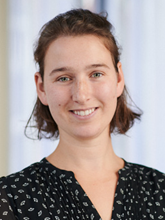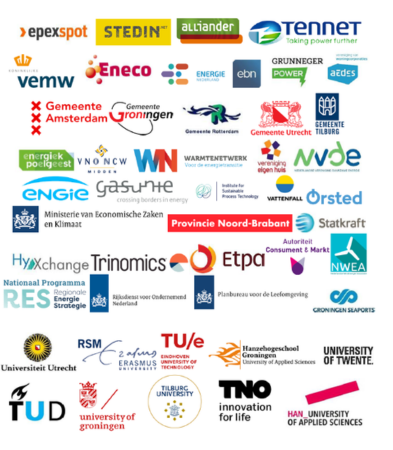Dr Ceciel Nieuwenhout awarded funding for energy system market regulation research toward carbon-neutral future

The research project ‘Market Organisation of the Dutch Energy System (MODES)’, in which Dr Ceciel Nieuwenhout of the Faculty of Law is participating, has been awarded funding from the Dutch Research Council (NWO).
Organization of energy sector
To ensure that the variable supply of solar and wind energy is matched to energy demand and there is always enough energy, the organization of the energy sector must change. A broad consortium of Dutch knowledge institutions is focusing on how the Dutch energy sector should be organized during and after the energy transition.
As part of this, the NWO launched the call “Market Regulation of the Energy System in 2050” in 2023 as part of the National Science Agenda (NWA). The call focused on knowledge development on the desired market order in relation to the energy system in 2050.

Market Organisation of the Dutch Energy System
The consortium 'Market Organization of the Dutch Energy System (MODES)', in which over forty parties are participating, has secured funding for this call. MODES focuses on the question: What combination of market organization, rules and policies reduce risks and lead to an energy system that can meet society's demands (both in terms of sustainability and reliability)? The project has been awarded a grant of €4,151,462, which will be used to hire PhD students and organize conferences, among other things. The project will start in January 2025 and last for five years.
Role of Nieuwenhout and the UG
Nieuwenhout's (and the Law Faculty’s) role within MODES is to lead the work package dealing with market organization for the North Sea energy system. Nieuwenhout, together with the doctoral student hired for this purpose, is investigating how the legal and regulatory framework needs to be adjusted to get the system that has the most societal benefits. For this, for example, the rules on expansion of energy infrastructure need to be optimized: currently, this is determined separately for electricity and gas. Also, in the transition toward 2050, there must remain enough investment security for wind farm developers and infrastructure developers.
This project joins previous research projects of the Groningen Centre of Energy Law and Sustainability (GCELS) in the field of offshore energy activities, for example PROMOTioN, DOSTA and HybridLabs.
This article was published by the Faculty of Law.
More news
-
08 December 2025
Colourful Characters: Bert Röling
